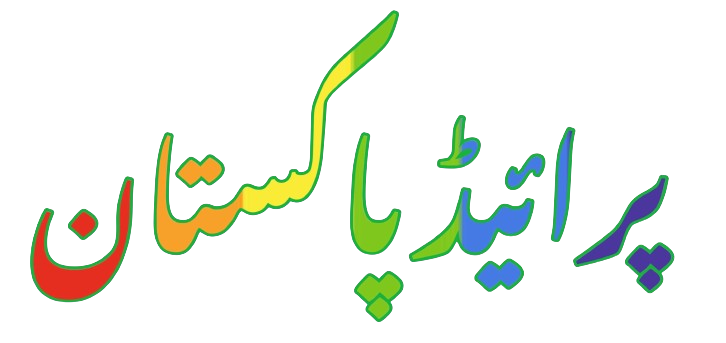Ali Raza Khan is a steering committee member of TheYouthPACT, an HIV-positive gay activist, and lives with PTSD.
There’s a particular kind of silence that haunts you when you live at the intersection of identities the world wishes to erase. As a gay man, as an HIV-positive person, as an activist in Pakistan, I have learned to live with the constant hum of threat. But the silence I hear now, echoing from the global corridors of power, is new. It is the sound of abandonment.
The year 2025 will be remembered by my community as the year the walls truly started to close in. We are facing a crisis that is not merely financial but existential. The announced global funding cuts to development work, NGOs, and UN agencies are not just line items on a budget sheet; they are death sentences for queer people in Pakistan.
The Double-Edged Sword: No Funds, No Diplomacy
For years, we survived on a fragile lifeline. International funding allowed a handful of beleaguered NGOs to provide safe houses, HIV medication, legal aid, and a sliver of hope. This was often coupled with quiet, yet firm, diplomatic pressure. When Western nations funded human rights, they also, occasionally, spoke up for them. Countries would raise our plight within UN human rights bodies, ensuring the violations against us were at least recorded.
That is now gone.
This isn’t just about the money disappearing. It’s about the diplomatic shield vanishing with it. Major donor governments, citing domestic priorities, have slashed their aid budgets. A UN Women survey in March 2025 found that 47% of women’s rights organizations, often our allies and service providers—expect to shut down within six months. The US has terminated over $500 million in grants for programs tackling child labor and human trafficking, issues that disproportionately affect vulnerable LGBTQI+ youth.
This withdrawal creates a vacuum of accountability. When UN bodies are themselves starved of funds, they cannot monitor or report on human rights violations. For the gay community, which already suffers from a severe lack of official data on persecution, this means we are being rendered invisible before we are eradicated. Our pain will not even be a statistic.
The State Tightens Its Noose
The Pakistani government has seized this moment of global indifference to launch a systematic assault. For NGOs, the labyrinth of bureaucracy has become a trap. The Economic Affairs Division (EAD) now demands exhaustive pre- and post-reporting on all foreign funds, effectively paralyzing organizations. Renewing an NGO’s registration or obtaining a No Objection Certificate (NOC) has become an exercise in futility. The result is mass closures, not by decree, but by a slow, deliberate strangulation. We are losing the very infrastructure that kept many of us alive.
Simultaneously, the state is weaponizing the law. The 2025 amendments to the Prevention of Electronic Crimes Act (PECA) have created a vague and powerful tool to crush dissent. The law criminalizes the “intentional” dissemination of “false information,” a charge easily fabricated against any activist. It has also established a new Social Media Protection and Regulatory Authority (SMPRA) with sweeping powers to block any content deemed “unlawful or offensive.”
This is a direct attack on us. The LGBTQI+ community in Pakistan exists primarily online. We cannot register as organizations because our very identities are criminalized under Section 377 of the Pakistan Penal Code, a colonial-era law that prescribes up to life in prison for “carnal intercourse against the order of nature.” The digital world was our last safe-ish space. Now, that space is being burned to the ground.
The government has already banned Grindr and other dating apps. For a time, we used VPNs to circumvent the blocks, but in late 2024, the state began heavily regulating and blocking unregistered VPN services, further isolating us. This isn’t theoretical. The Federal Investigation Agency (FIA) in Faisalabad has actively used dating apps to entrap and arrest gay men. The state is not just censoring us; it is actively hunting us.
The Human Cost of Silence
When the system is designed to crush you, even seeking help is a risk. Activists who dare to speak out are met with the state’s full force. They are placed on travel restriction lists, like many activist who was blocked from traveling to participate in human rights related activities. They are subjected to enforced disappearances. They are slapped with fabricated FIRs that turn them into criminals in the eyes of the very international bodies that once might have helped them.
The message is clear: you are on your own.
The global community, by defunding our protectors and turning a blind eye to our persecution, has become complicit in this assault. They have signaled to the Pakistani government that the lives of queer people are disposable.
As an activist, I am supposed to end with a message of hope. But hope is a luxury we can no longer afford. What we have is a burning, defiant rage. We see the walls closing in, we hear the silence of our former allies, and we know that we have only ourselves to rely on now. We will continue to organize in the shadows, to support each other in secret, to fight for our right to exist. But I ask the world, as you turn your back on us, how many of us have to disappear before you notice we are gone?


Leave a Reply